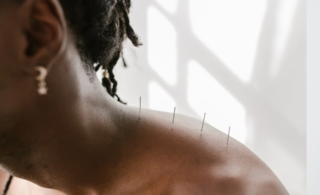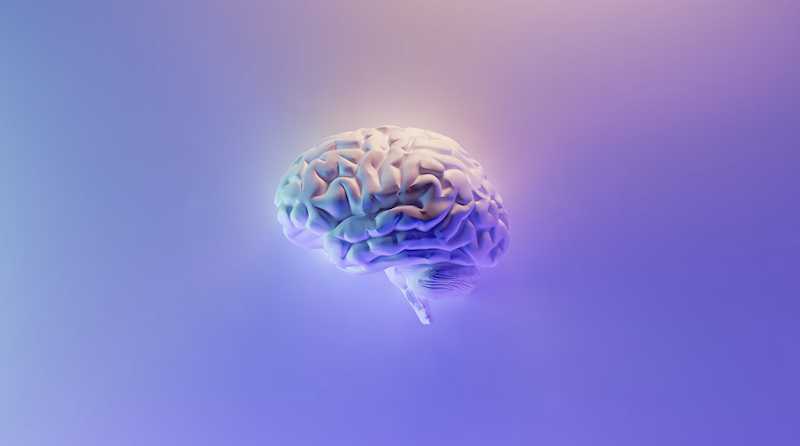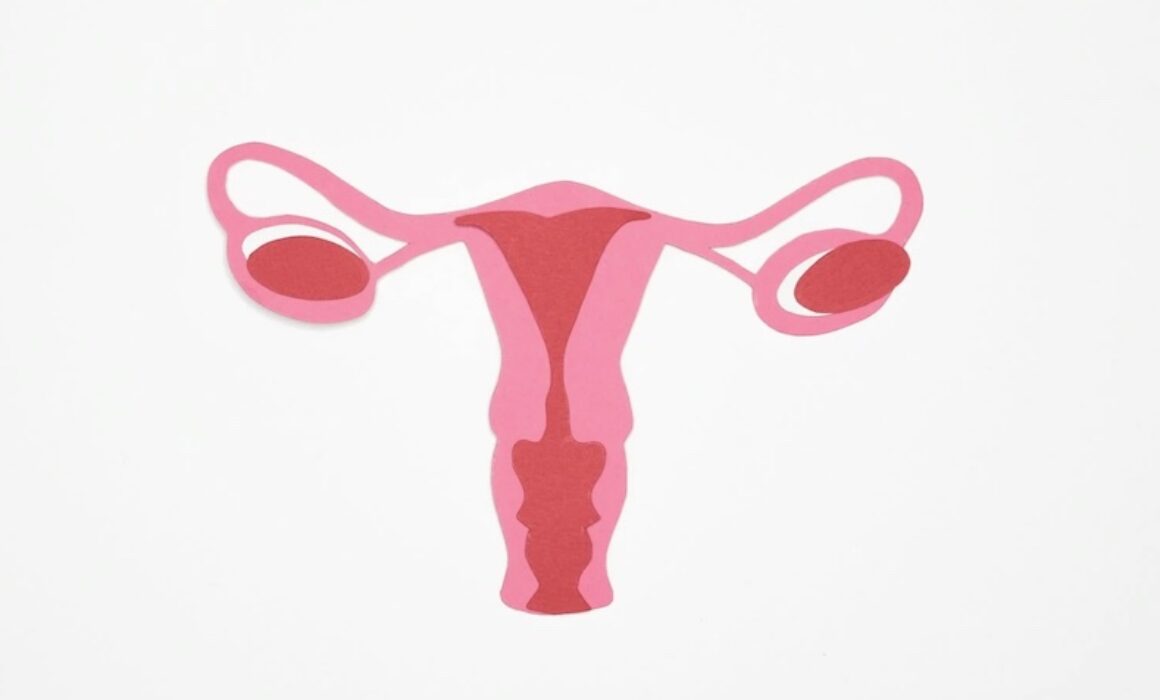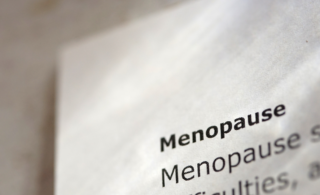
In this article, we’ll give you some practical tips for coping with symptoms of breast cancer-related menopause and hormone therapy. We’ll also direct you to places where you can find more information. We’ve listed the most common symptoms together with some practical tips for coping with them.
There are various reasons why you might experience menopausal symptoms or go through early menopause during/after breast cancer treatment, for example:
- Chemotherapy can bring on an early menopause in some women. Sometimes this is permanent and sometimes it can bring on a temporary menopause where periods re-start a few months after chemotherapy ends.
- For those women who have their ovaries removed as part of their breast cancer treatment (for example if they carry the BRCA gene) they will be induced into menopause (if they have not already been through a natural menopause pre-cancer).
- Hormone treatment can also bring on an early menopause or mimic a menopause. Women who’ve already had a natural menopause pre-cancer, can also experience menopausal symptoms when on hormone therapy.
So, as you can see, it is very common for women who have or have had breast cancer treatment to experience menopausal symptoms. It’s important to remember that everyone’s experiences are different. We’ve written this from our experience as patients. This is a starting point for you from which you can do further research. It’s really important that you discuss your symptoms with your chemo nurses, oncologist or GP as they will be able to provide advice or refer you to places where you can get further help or advice.
“I would highlight the importance of seeking an opinion from a menopause specialist with help in treating the symptoms. And if you try something – a treatment – to help your symptoms, use it for at least 3 months before switching to another treatment. Try one thing at a time rather than a few at the same time so you can work out which one is most helpful.” Jackie, Breast Care Nurse.
Tips for coping with menopausal symptoms from cancer treatment:
1. Hot flushes and night sweats
Hot flushes during the day and night sweats can be triggered by certain things such as caffeine, alcohol and spicy foods. Try to work out what your triggers are so that you can cut down these things. It can be helpful to keep a diary of hot flushes and night sweats in order to work out a pattern or triggers. For night sweats you can keep a small can of water spray next to your bed, have a fan in the bedroom and use a specially designed cooling pillow. Bamboo nightwear can also help because it is highly breathable, absorbent and temperature regulating. If you are sweating at night and having to change clothes in the middle of the night then wearing this might help. Speak to your oncology team as they may be able to suggest other ways of helping with hot flushes and night sweats, such as acupuncture and medication.
“Acupuncture has been a game changer for me: it has really helped with my hot flushes.” Sara

2. Reduced bone density
The menopause, as well as Aromatase Inhibitor hormone therapy, can affect your bone density over time and can lead to osteoporosis and its precursor, osteopenia. To help prevent this, the advice is to:
- Ensure you have enough vitamin D and calcium in your diet – check with your GP/oncologist about whether supplements are suitable for you and you may wish to consider taking advice from a specialist registered dietician or nutritionist about which supplements would help;
- Do gentle weight bearing exercises – again check with a professional if you have had recent surgery, are now at risk of lymphoedema, or having treatment;
- Stop smoking;
- Avoid excess alcohol; and
- Keep to a healthy weight.
It’s worth talking to your oncology team about having Dexa scans to monitor your bone strength and in some circumstances additional bone strengthening medication may be necessary.
Menopause can increase your chances of developing osteoporosis. Breast Cancer Now have a booklet covering any concerns that you may have and it can be ordered or downloaded here. You may wish to look at the Royal Osteoporosis Society website and this helpful article.
3. Brain fog
It’s common to experience brain fog as a result of the menopause or hormone therapy and from breast cancer treatment. This brain fog can be confused with lingering chemo brain if you’ve recently completed chemotherapy. They both cause the same fogginess and inability to recall names or words, and inability to use your brain as you used to before cancer. Exercise can help, as can CBT and mindfulness to reduce stress. It’s worth understanding that if you’re experiencing brain fog, you might need to adapt how you work and how you live generally. For example, avoid multitasking, make to-do lists, and don’t arrange meetings at times of the day when the brain fog is at its worst. There is an increasing awareness and acknowledgement by the medical profession of this symptom and a number of hospitals and clinics offer courses to help.
CRUK have information on the effects on memory

4. Weight gain
This is a particularly prevalent side effect of Tamoxifen. With less oestrogen entering the cells of your body, your metabolism slows down and you can put on weight more easily – especially around the waist. And it can be really hard to lose this weight. But, it is possible by exercising – especially weight bearing exercises – and making healthy changes to your diet. It’s advisable to take professional advice from your oncology team or a registered dietician about making changes to your diet.
CRUK have information on weight gain
5. Aching joints
Aching joints are often worse in the morning but they can improve over the course of the day with increased exercise and movement. To help with aching joints, keep yourself active within your limits: do plenty of exercise but recognise that you may not be able to exercise at the same level as pre-cancer. It’s worth consulting your oncology team to ask for advice on supplements and acupuncture. Aches and pains can be intense and it’s especially important to talk to your oncologist if this symptom is causing problems to your daily life.
6. Vaginal dryness
It is very common to experience vaginal dryness which can lead to painful or uncomfortable sexual intercourse as well as general discomfort. Ask your GP or oncology team about safe vaginal lubricants and moisturisers to use to help with the vaginal dryness. Don’t be embarrassed to talk to your oncology team about this side effect because early, regular use of vaginal moisturisers and additional lubricants prior to intercourse can really help. Check out this Expert Advice on sex during/after breast cancer.
CRUK have information on decreased sex drive.
7. Disturbed sleep and insomnia
Often, a disturbed night’s sleep is down to one or more of the other symptoms discussed above, so if you start to deal with these symptoms your sleep will hopefully improve. However, there are things that you can do to improve the quality of your sleep, including:
- Address your sleeping area: Is it dark enough? Is it the right temperature – do you need bedding layers to help adapt to your change in body temperature during the night? Is it comfortable? Would earplugs or an eye mask help?
- Address your bedtime routine: Do you have screen free time before bed? Would a warm bath with essential oils help you to relax? Would it help to listen to a guided sleep meditation?
- Address your emotional state: Do you go to bed stressed or wake up in the night with your mind racing? Would it help to keep a notebook next to the bed so you can note down any concerns or things to remember?
- Do you wake in the night and worry? Doing some simple breathing exercises or mindfulness exercises in the middle of the night can help to relax you and get you back to sleep. See Louisa’s article on breathing exercises to help you and our mindfulness tips here.
For advice on getting a better night sleep look at The Insomnia Clinic.
8. Anxiety
Increased anxiety is incredibly common after cancer treatment and it can be down to a number of factors, including as a result of entering an early menopause or taking hormone therapy. For advice on coping with increased anxiety, take a look at our page on Coping With Anxiety and Other Mental Health Issues.
9. Emotional rollercoaster
You might find yourself feeling UP and DOWN all the time: crying for no reason, losing your confidence, more anxious and experiencing mood swings!
10. Fertility
If you have not had children and you are embarking on breast cancer treatment then you will need to discuss fertility issues with your oncologist. There is a Breast Cancer Now booklet on fertility which you can order or download from here.

Further information
Articles on our website with more information:
Dani’s advice on the menopause and cancer
How acupuncture can help menopausal symptoms
Dr Hannah Short’s helpful menopause tip sheet
Podcast episode on hormone therapy
External resources:
Trekstock Navigating Menopause course for women in their 20s and 30s.
CRUK have information on fatigue and tiredness
Macmillan – managing menopausal symptoms
Cancer Research UK – breast cancer and menopausal symptoms
Menopause and Cancer podcast by Dani Billington
Menopause Matters is a website providing up-to-date information about the menopause, menopausal symptoms and treatment options. It is not breast cancer related. It may give you some information on how to manage your symptoms.
There is an excellent article in the Telegraph called “Your guide to dealing with chemotherapy induced menopause”. Go to www.telegraph.co.uk and search for the title.
NHS Bridgewater Community Healthcare information sheet on the menopause
The Daisy Network – helps young women with POI and early menopause
Books:
The Complete Guide to the Menopause: Your Toolkit to Take Control and Achieve Life-Long Health, Dr Annice Mukherjee
The Complete Guide to POI and Early Menopause, Dr Mandy Leonhardt and Dr Hannah Short
Future Dreams hold a range of support groups, classes, workshops and events to help you and your carers during your breast cancer diagnosis. These are held both online and in person at the London-based Future Dreams House. To see what’s on offer and to book your place, see here.
To return to the homepage of our Information Hub, click here where you can access helpful information, practical advice, personal stories and more.
Reviewed November 2022
The information and content provided on this page has been written from a patient’s perspective then reviewed by a breast care nurse and it is intended for information and educational purposes only. It is not intended to substitute for professional medical advice. Please contact your medical team for advice on anything covered in this article and/or in relation to your personal situation. The links and/or recommendations in this article to third-party resources are for your information and we take no responsibility for the content contained in those third-party resources. Any product recommendations made in this article are not product endorsements and unless otherwise stated, they are made without any affiliation to the brand of that product. We ask you to note that there may be other similar products available.
Share

Support awareness research
Donate to those touched by BREAST cancer
Sylvie and Danielle began Future Dreams with just £100 in 2008. They believed nobody should face breast cancer alone. Their legacy lives on in Future Dreams House. We couldn’t continue to fund support services for those touched by breast cancer, raise awareness of breast cancer and promote early diagnosis and advance research into secondary breast cancer without your help. Please consider partnering with us or making a donation.

